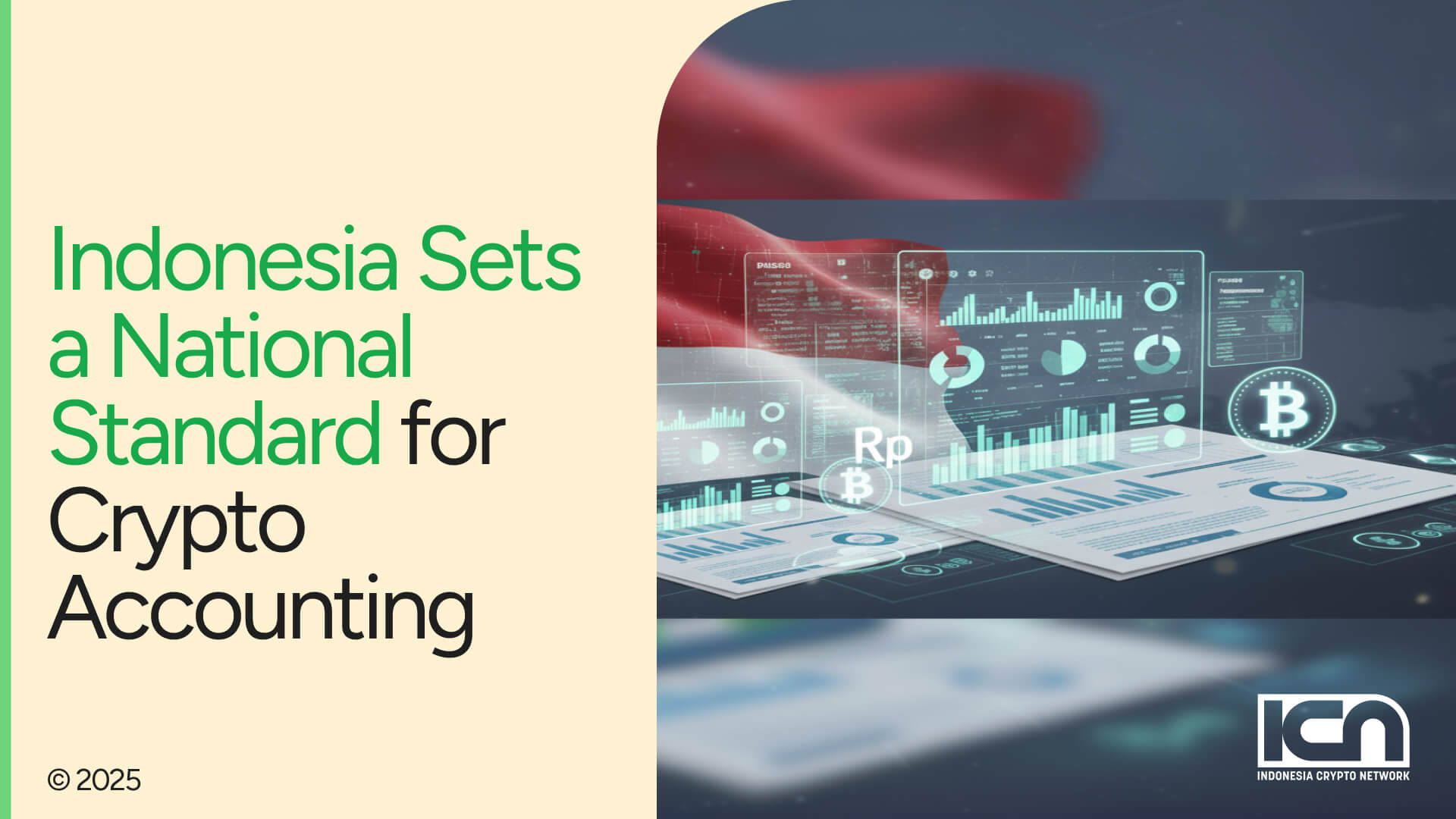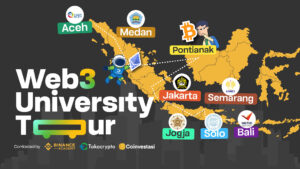Indonesia’s crypto industry has entered a new phase, one defined by transparency, structure, and institutional credibility. For years, the market has been one of the fastest-growing in the world, with more than 18 million users and Rp360 trillion in crypto transactions recorded this year alone. Yet behind the numbers, a critical question remained unanswered: how should crypto assets actually be reported on the books?
Different companies had different interpretations. Some recorded tokens as intangible assets, others as inventory. For auditors, investors, and regulators, this inconsistency made it difficult to assess financial health or ensure compliance. That ambiguity ends now.
OJK and IAI Set a New Standard
In October 2025, Indonesia’s Financial Services Authority (OJK) and the Indonesian Institute of Accountants (IAI) jointly introduced Buletin Implementasi Volume 8: Aset Kripto Milik Entitas dan Aset Kripto Pelanggan yang Dititipkan pada Entitas — the country’s first unified accounting and reporting framework for digital assets.
Developed by the Dewan Standar Akuntansi Keuangan (DSAK–IAI), this bulletin provides implementation guidance that aligns with Indonesia’s Financial Accounting Standards (SAK) and international best practices, particularly the IFRIC Agenda Decision: Holding of Cryptocurrencies (June 2019).
Read more: How to Run a $10K Crypto Marketing Campaign in Indonesia
According to the bulletin, crypto assets held by entities must be classified under PSAK 202 (Inventories) if they are held for sale in the normal course of business, or under PSAK 238 (Intangible Assets) when they represent identifiable non-monetary assets without physical form. This classification helps companies accurately reflect the economic substance of their holdings, whether for trading, custody, or investment purposes.
The bulletin also provides clear guidance for custodial entities that safeguard client crypto assets, emphasizing that they must evaluate control and liability obligations under PSAK 237 (Provisions, Contingent Liabilities, and Contingent Assets). In short: if an entity controls client assets or bears risk of loss, it must recognize both the asset and a corresponding liability.
These frameworks bring Indonesia’s crypto accounting practices to global parity, ensuring consistency, reliability, and legal enforceability in how digital assets are represented in financial statements.
Read more: Crypto as a Pillar of Indonesia’s Digital Economic Transformation
Building Trust Through Transparency
Hasan Fawzi, OJK’s Chief Executive for Digital Financial Assets and Crypto Supervision, described the goal simply, “We aim to establish transparency and market integrity from the ground up. Standardized accounting practices allow entities to be comparable, reliable, and aligned with both regional and global standards.”
With this initiative, Indonesia is signaling that its crypto ecosystem is ready to evolve beyond speculation into a governed, credible, and investable market. Financial integrity is no longer optional, it’s the foundation for long-term growth and institutional participation.
Ardan Adiperdana, Chairman of IAI’s National Council, added, “This bulletin represents a strategic milestone in reinforcing governance, credibility, and reliability within the digital asset sector. It aligns Indonesia’s accounting standards with international best practices while ensuring contextual relevance.”
This alignment not only builds confidence among local auditors and CFOs but also gives international investors a clearer lens to assess risk and value within Indonesia’s crypto ecosystem.
From Compliance to Competitive Advantage
For crypto exchanges, fintechs, and custodians, the Buletin Implementasi isn’t just another reporting guideline — it’s a strategic signal. By setting clear accounting standards, OJK and IAI are strengthening governance while making Indonesia’s crypto market more attractive to global partners. Consistent financial reporting simplifies due diligence, reduces audit friction, and builds the kind of transparency investors and institutions expect.
But beyond the balance sheet, this clarity is also reshaping how Web3 brands tell their stories — shifting from speculative innovators to trusted financial players. In a market where trust equals traction, reliability has become as valuable as innovation.
At ICN, we see regulatory progress not as a constraint but as a catalyst for growth.
We help Web3 and digital asset companies translate structural changes — like the OJK–IAI framework — into narratives that build trust, relevance, and adoption.
Because in Indonesia’s next chapter of digital finance, trust isn’t just compliance — it’s culture. And the brands that can communicate that will define the future of Web3 growth.
Building your crypto or Web3 project in Indonesia? Let’s make it land.
Contact ICN — your local growth partner for the Web3 economy.




